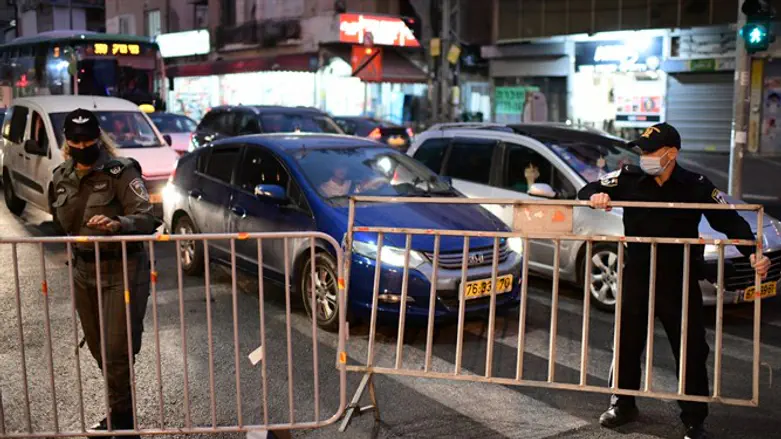
According to the plan for the expected lockdown, Israel's schools will close on Wednesday, and a full lockdown will go into effect at 6:00a.m. Friday morning.
The plan, which entails a full lockdown for two weeks, must still be approved by Israel's government on Sunday.
In the first stage of the plan, movement will be limited to 500 meters around a person's home, and all businesses will be closed, including stores, cultural and entertainment venues, tourism venues, and any business which handles customers face-to-face. Restaurants will be permitted to offer delivery or take-away only.
Essential businesses will be allowed to continue operating. These include food stores, pharmacies, opitical stores, hygiene stores, communications stores, medical equipment stores, and stores which sell essential home products.
For the public sector, the plan calls for companies to operate with just 30% of employees present at the office, in accordance with the exceptions made to prevent harm to essential services.
For the private sector, the Finance Minister will ask the government to approve a plan under which no more than 10 employees or 30% of the employees normally working from the office - whichever is higher - will be present in the office, while allowing essential workplaces to continue operating.
Public transportation during each of the stages will be reduced in accordance with the amount of activity in the workplaces during that stage, so as to prevent people from traveling from place to place, other than to and from essential workplaces and workplaces which are permitted to operate.
If the infection rates drop, Israel will move from a full lockdown to a second phase, ahead of the Sukkot (Festival of Tabernacles) holiday. In this stage, the 500-meter limit will be removed, but the education system and businesses will remain closed, and the restrictions on workplaces in the public sector will continue.
The Finance Ministry estimates that the economic cost of these two stages will amount to approximately 18-19 billion shekels ($5,204,372,760-5,493,504,580).
A Health Ministry report submitted to the Foreign Affairs and Defense Committee shows that since July 1, 978,000 Israelis have been required to quarantine. MK Zvi Hauser (Derech Eretz), who heads the Committee, called for an assessment of whether the quarantine period can be reduced by two days, after a coronavirus test is conducted on the ninth day.
